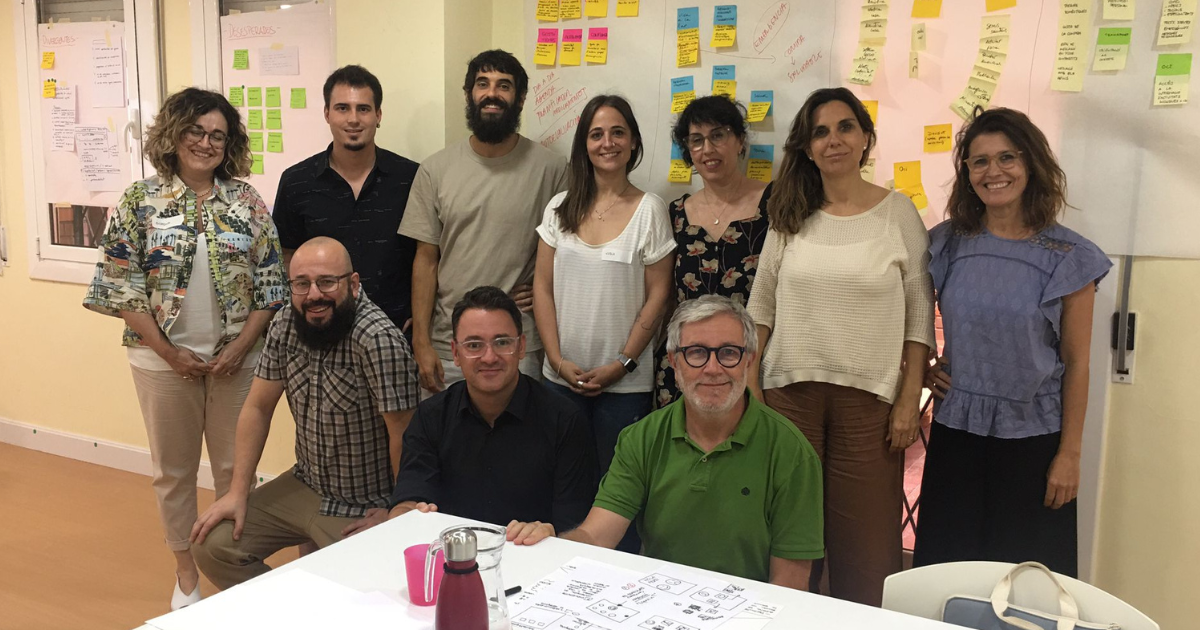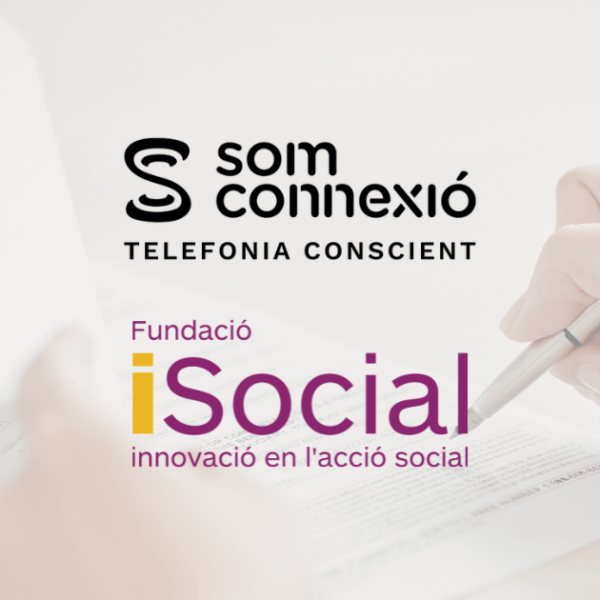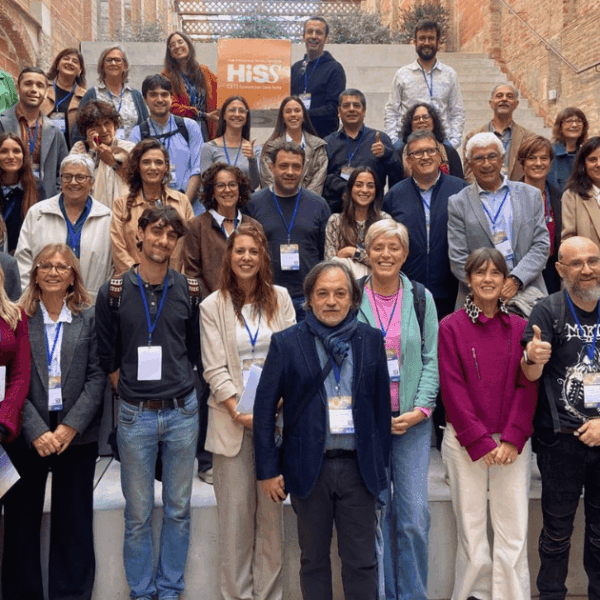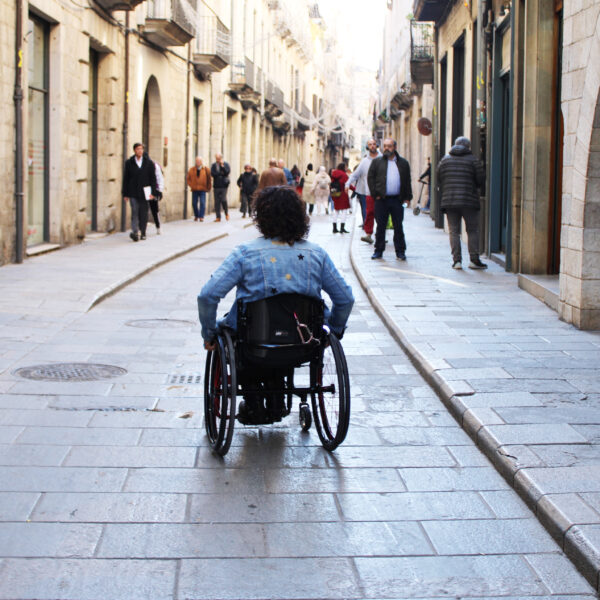Four Working Groups Launched to Drive Innovation in Social Action

Four Working Groups Launched to Drive Innovation in Social Action

More than 30 professionals from 14 member organizations of iSocial are participating in the four working groups on self-directed supports, independent living, digital inclusion, and deinstitutionalization.
Since last July, the iSocial Foundation has strengthened its internal working groups by launching three new groups and expanding the number of participants. These working groups are spaces for debate and exchange, where professionals reflect on new trends in the social sector and seek opportunities for improvement. The working groups are designed as idea laboratories, where specialists from our member organizations work together to generate knowledge collectively.
The three new working groups build on the successful experience of the “All by Myself” group, which, over the past year, has analyzed the challenges faced by people with intellectual disabilities in achieving a more independent life, with professionals and people with disabilities from six member organizations. The success of this group has inspired the creation of three new spaces for reflection, focusing on the implementation of self-directed supports, digital inclusion for people experiencing homelessness, and the transformation of intervention in deinstitutionalization processes. In total, 32 professionals from 14 of our 19 member organizations are involved.
The creation of these new working groups is also tied to a new project by the foundation, which involves the preparation and publication of a collection of Professional Guides on Innovation in Social Action. These guides, which we will begin publishing this fall, aim to promote knowledge, encourage the adoption of new perspectives, and facilitate the implementation of innovative methodologies and tools in the social sector. The working groups will actively contribute to the creation of these guides, jointly defining the topics and overseeing their development to ensure that the guides are practical, engaging tools for professionals in the sector, providing them with useful knowledge for their work.
Working Group on Self-Directed Support
In July, we launched the first of the new working groups, focused on Self-Directed Supports. Self-Directed Supports are an innovative approach to social intervention that facilitates the practice of Person-Centered Care, giving individuals the ability to decide and direct the supports they need, through personalization and collaboration. Its implementation requires practical changes in the system, including budgeting, evaluation, planning, and the provision of supports.
The working group aims to reflect on these challenges and, based on the experience of some organizations, conceptualize the Professional Guide to Innovation in Self-Directed Supports. Through this guide, we seek to promote a shift in perspective regarding the importance of effectively integrating Self-Directed Supports into the social sector and to present basic actions that can help introduce this approach to professional teams.
Working Group on Digital Inclusion for People Experiencing Homelessness
Participation in the digital sphere has become an essential aspect of every citizen’s life, whether in terms of advancements in e-government and access to information, changes in social relationships, access to the job market, or leisure. However, many people experiencing homelessness do not have access to the digital world: they are one of the most digitally excluded groups in our society.
Following the example of NIDUS and the digital inclusion experience that some of our member organizations already have, the digital inclusion working group opens a space to reflect on this line of intervention as an essential part of social inclusion, as well as to come up with new initiatives to continue promoting digital inclusion for people experiencing homelessness.
Working Group on Deinstitutionalization
The transition from an institutional model to deinstitutionalization redefines care and transforms how we think about social services, professional roles, and the institutions themselves. In response to this challenge, the Ministry of Social Rights, Consumer Affairs, and the 2030 Agenda has launched the State Strategy for a new model of community-based care: a process of deinstitutionalization.
At iSocial, in addition to the “Practical Keys to Deinstitutionalization” training, we are launching the deinstitutionalization working group to share knowledge and reflect on the transformation of social intervention, decision-making support, and risk management in deinstitutionalization contexts.
Working Group “All by my self” on Independent Life
Since 2023, this group of professionals from six organizations specializing in supporting people with intellectual disabilities has been reflecting on person-centered approaches to identify their needs and develop innovative solutions.
Following the Design Thinking methodology, the group has identified difficulties or pain points that people with intellectual disabilities face in their daily lives to achieve more independent living. The working method has involved a series of meetings with groups of six to eight people with intellectual disabilities, who shared their everyday contexts.
These discussions allowed us to identify challenges, desires, and needs related to increasing their autonomy, which summarize the pain points of the group. From here, the group plans to continue working to identify possible innovative solutions that address the identified pain points.
With these new working groups, the iSocial Foundation continues its efforts to promote the exchange of best practices among organizations and generate knowledge that can contribute to improving the delivery of social services, both in the public sector and the third sector.
Actualitat






